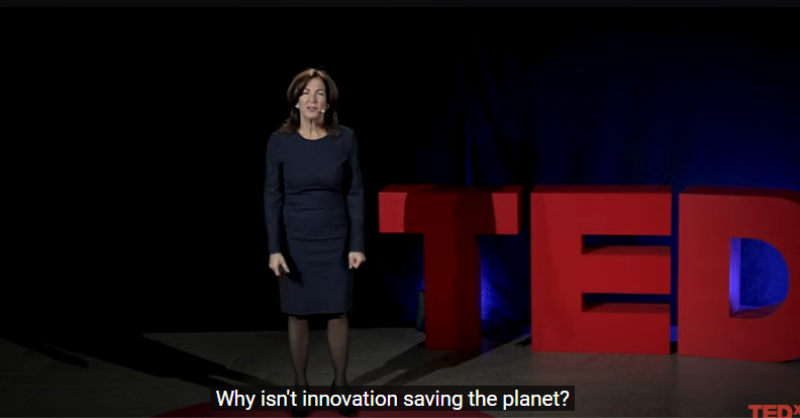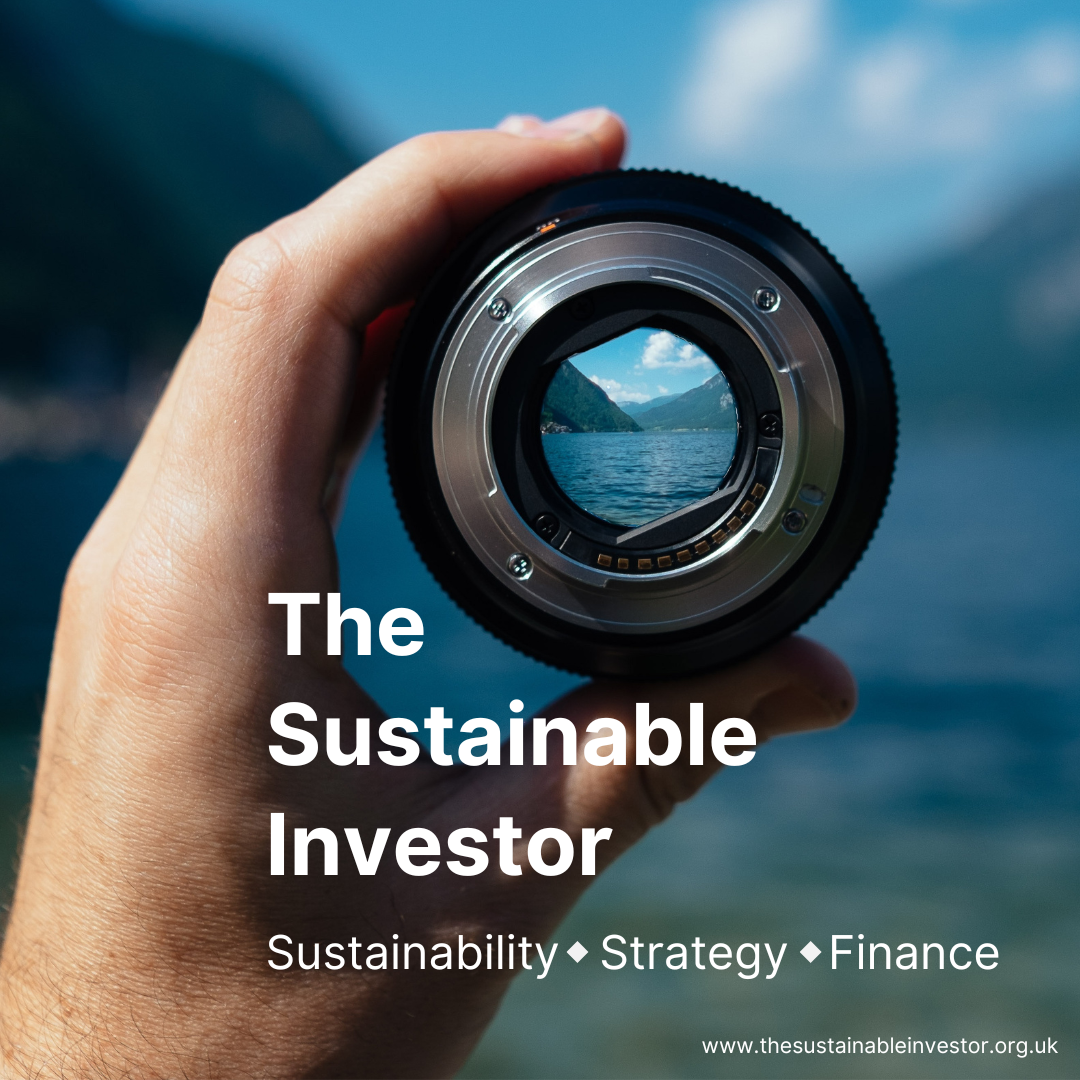
Sunday Brunch: Innovation alone will NOT save the world
Innovation is great. It's the life blood of long term value creation in many industries. But on it's own it's not enough. When it comes to putting your money to work, look beyond this to those companies that are good at taking good ideas, and turning them into profitable businesses.
"Ideas won't keep. Something must be done about them" - Alfred North Whitehead (English mathematician)
Innovation is great. It's the life blood of long term value creation in many industries. And, quite rightly, it gets a lot of attention in the press, your digital feeds, and in strategy/financial analysis work. But we need to be clear, on it's own it's not enough. It needs all sorts of detailed and complex follow up to turn something from a good idea to a great business opportunity. And without this work innovation is just another good idea.
Why is this ? Because as Gina Domanig says in her recent TED talk "innovation is just the seed". And to take the analogy a bit further, if we don't water and nurture the seed, it dies.
In the case of innovation, this nurturing is about validating the value proposition, working out how to industrialise the technology, raising the required capital, and building market demand. Skills and expertise that sometimes innovators do not have. If we don't give these aspects of innovation development the attention they deserve, a decade from now we will still be talking about what needs to be done, and how we need more innovation.
And remember, we already have most of the technologies we need to make the sustainability transitions happen - its now about application and improvement. So while we should keep on celebrating the inventors and the innovators, when it comes to putting your money to work, look beyond this to those companies that are good at taking good ideas, and turning them into profitable businesses.
To misquote the Bible, and the Field of Dreams movie "you need to do more than build it, if you want them to come".
If you want to read the rest and are not already a member...

Innovation alone will NOT save the world
Innovation is just the beginning of the process, not an end in itself. As investors and Sustainability Professionals it is important that we look beyond the 'good idea', spending time examining the building blocks of what will turn an innovation into a successful business - from both a sustainability and profitability perspective.
This is something that some finance people understand. But it can be seen as less important by Sustainability Professionals. Why ? Sometimes it's our bias. We want to believe that innovation can fix the problem, so we suspend our critical facilities - just a bit.
Behavioral people call this confirmation bias. And it's something that Alex Edmans, which many of you may know through his influential book Grow the Pie, talks about on his website "May Contain Lies.

But, my experience has been that a lot of the time it's a lack of knowledge about the nitty gritty of business. The contribution to a successful business that comes from process & operations, supply chains, marketing, and finance. The good news is that it's possible to learn about these things. And you don't need to become a subject expert.
CT & MRI scanners - the innovators and the commercial winners
Innovation often doesn't work out the way you expect. Computed Tomography (CT) and Magnetic Image Resonating (MRI) scanners are now widely used in hospitals across the world for medical diagnosis. It's not an exaggeration to say that they have been influential in massively advancing medical science, and in saving countless lives.
In 1967 Godfrey Hounsfield, a researcher at the UK conglomerate EMI, was given the green light to begin work on what would become the CT scanner. EMI was then best known for it's music recording business. But despite having limited medical technology expertise, by 1973 they had not only built a commercial CT scanner, but on the back of their monopoly protections, were earning substantial profits. By June 1974, they had sold 35 scanners in the US, generating sales of over £5m, at a 24.5% profit margin.
And in the same year, EMI, working with a Nottingham physicist Peter Mansfield, began development of the first commercial MRI scanner. The future looked promising.
But by 1980 it was effectively all over for EMI in the medical technology space. The company lacked the production resources of it's competitors (GE, Toshiba, Siemens etc). As the technologies went from innovation to full commercialisation, the advancements became more incremental than revolutionary. Something they were not so good at. Plus, the company never really grasped how to best market the product to radiologists, something it's more experienced medial technology competitors were much better at.
The long term winners were those companies that were better at the business aspects - product production and development, commercialisation, and marketing. The initial innovation gave EMI a head start, but they were unable to sustain that advantage.
In fact the wider future for the company turned out to be poor. After various restructurings, EMI was purchased in 2007 by the private equity firm Terra Firma for c. £4.2bn . But by 2015, laden down with debt, the company was taken over by it's major creditor (Citigroup).

Innovation and sustainability
Coming back to Gina Domanig. I don't know about you, for my work I read a lot of reports, and watch/listen to a lot of Ted Talks and Podcasts. Sadly, many of them miss the mark when it comes to practical advice on sustainable finance. But, every now and then I come across one that shouts out. And this is one of those must watch video's.
Gina is the Managing Partner of Emerald, a leading venture capital firm focused on building a sustainable future. So, someone who knows what she is talking about when it comes to innovation and sustainability.

What does she say we need as well as the spark of innovation?
First up, the phase of highest failure, validating the value proposition. By this she means 'what is it you are aiming to deliver, and can you do it at a price that is acceptable to the customer'. This is often when innovators fall over. They are great at building the prototype. And their enthusiasm can often get them the money they need to get the project off the ground. But being really clear about what you are selling, to whom, and at what price, is often outside their skill set.
And if you make it past this hurdle, the next question is industrialisation. Can we scale up production (and everything else that goes with it) to the level needed to make the company financially viable? Building a production process at scale is a real skill, that comes from experience. As EMI found out to their cost.
And, to make this happen you need often need a massive amount of capital. Which is where incumbents often have a potential advantage. Banks and bond managers are generally much happier putting money into a business with existing cashflows, as opposed to a start up with few customers, that is heading out into a massive scaling up of production.
Which neatly leads into Gina's fourth hurdle, market demand. This is where the 'build it and they will come' approach just doesn't cut it. Getting customers to take up a new product, or a new process, is hard. Just because your analysis shows it makes financial sense does not guarantee that sales will happen. Change for many companies is painful and institutional inertia is high.
It's worth your time to watch.
Something a little more bespoke?
Get in touch if there is a particular topic you would like us to write on. Just for you.
Contact us
Please read: important legal stuff.




